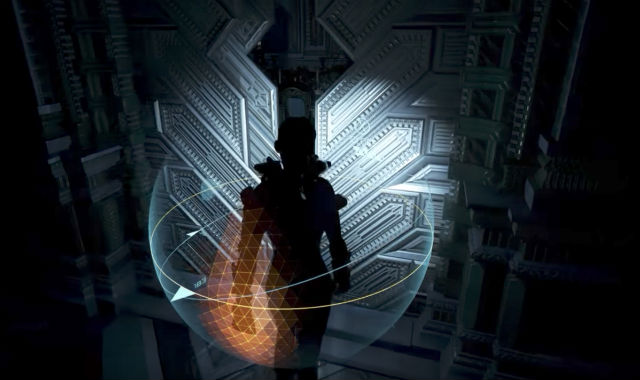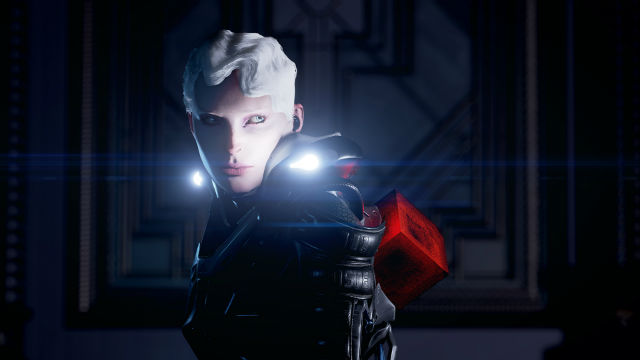Echo is Copenhagen-based developer Ultra Ultra’s debut game as an indie studio. You play as En, who after 100 years in cryogenic stasis, must make her way through a palace to revive a mysterious person who “should never have been lost”.
Far from its marble classical facade, the palace is actually a sentient being, devoid of any human inhabitants. Using sophisticated technology, it observes your every move and creates clones of your character known as Echoes, which will try to wipe you out. The game essentially takes the sci-fi rulebook and throws it out the window by cleverly using these copies to mimic your play style — meaning you will have to keep changing your tactics to progress.
I was lucky enough to get a chance to speak to Martin Emborg, the lead designer for Echo, and unpack his thoughts about and inspirations behind this title.
GameSkinny: Ultra Ultra is relatively new to the games industry. What has the journey been like for you to go from an aspiring developer to an actual development team?
Martin Emborg: Even though Echo is our first game as a company, most of us have shipped quite a few games at IO-Interactive [the studio behind Hitman]. The transition from working at a big studio to doing it ourselves, has been more work than I think any of us anticipated, but at the same time, it has also been a very liberating experience creatively. Unreal 4 has had a lot to do with that as well, as we could start building our game from day one, using AAA grade software.
GS: From the look of Echo, it’s hard to believe that a team of only eight people developed it. How did the size of your team affect your development process and the number of concepts you were able to execute in the final version of the game?
ME: Communication is a lot easier when you are fewer people, so getting things “right” is easier. But of course, bulk is then the big challenge. We’ve tried to be smart about our master-sets, and not wasting time on less essential assets.
GS: The trailer features a palace setting that seems to combine classical architecture with futuristic, sci-fi elements. What inspired this aesthetic, and how did you go about implementing it successfully?
ME: Even though it by its very definition is classical, setting the game in a Palace felt fresh. Our visual inspirations are many, but probably mainly real architecture: Versailles and Frank Lloyd Wright are the primary sources I think.

GS: With a female protagonist in En and a sci-fi setting, some may say that this is a Metroidvania type of game. Would you say that Metroid was an influence?
ME: Of course, Metroid exists in our collective consciousness as something fundamental, but thinking of Echo as a Metroidvania based on setting and gender is a bit of a stretch I think. Would be cool to make one someday though!
GS: The idea of having clones (or Echoes, in this case) copy your behavior in-game sets it apart from other sci-fi shooters. What led you to implement this mechanic in the game, and how does it serve to improve the experience for the player? Is it possible to outsmart these Echoes?
ME: The one you need to outsmart here is yourself. In many ways, the most interesting component of any game is the player, and with the Echo AI, we’ve put that front and center.
(Note: This is clear from the walkthrough narrated by Martin that went live just after the interview).

GS: How does the Palace’s setting (and the Echoes inside) inform the narrative around En’s quest to restore “a life that should never have been lost”? Is there more background information you could give us about the world she’s visiting or what her ultimate goal is?
ME: I don’t have more information for you, but a few extra questions:
How did she find the Palace? Why does she believe that she can bring someone back out here? And indeed, who is En and this person she wants to revive?
These are all questions that the story revolves around. The player is dropped into the narrative as she awakens on the ship, and has to piece the situation together from the conversations between En and the ship’s AI London as they enter the dark Palace.

GS: If Echo is a success, would you ever consider creating a sequel for it or turning it into a franchise? Alternatively, would your team prefer to leave it as a standalone game and simply apply the lessons learned from developing this game to a new project?
ME: We started Ultra Ultra to be independent, and to let our hearts decide what games we work on. We’re not looking to turn Echo into a franchise, but I won’t discount the possibility of more games set in that universe.
Many thanks to Martin Emborg (via PR guru Chris Kramer of Forty Seven Communications) for answering my burning questions. Echo will be out on PS4 Pro, PS4 and Steam on September 19. You can check out the game’s website and follow Ultra Ultra’s Twitter feed or Facebook page if you want to know more about this upcoming release.







Published: Aug 21, 2017 05:15 pm